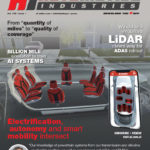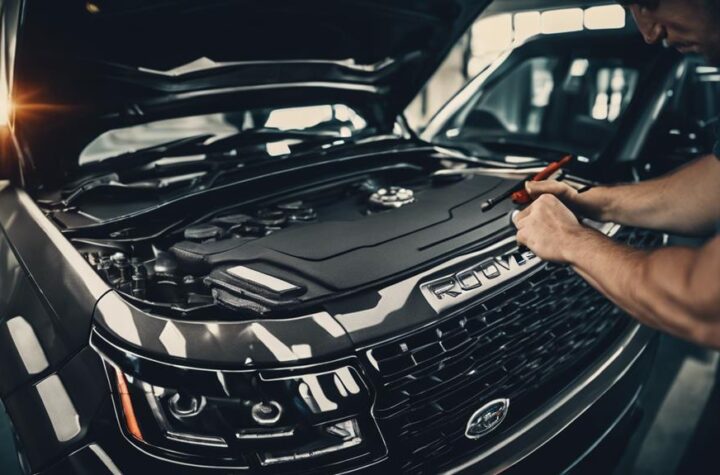In many ways, the automotive industry has become a leader in the use of advanced electronics. To find out what is happening in the field, Automotive Industries approached one of the leaders – Bosch.
The company began developing and manufacturing electronic components approximately 40 years ago. The first products were diodes for alternators and since then the company has focused on continually expanding its component portfolio. The company’s Automotive Electronics division specifically develops and sells electronic products for automotive applications. The division is headquartered near in Reutlingen near Stuttgart, Germany. Apart from internal supplies to all other Bosch divisions, a growing percentage of Bosch products is being sold to Tier 1 suppliers worldwide. In addition, Bosch Sensortec, an independently acting, 100 % Bosch subsidiary, serves the market with dedicated consumer electronics and sensor products.
In the area of automotive semiconductors and sensors, Bosch Automotive Electronics ranks among the top five makers in Europe and among the top ten worldwide. For automotive MEMS sensors, Bosch is the worldwide leading supplier. In 2007, due to a growing demand for its automotive devices, the Bosch Automotive Electronics division began construction of its new wafer factory in Reutlingen, Germany. The plant is scheduled to launch activities in 2009. Within the next five years, the company plans to build up a capacity of about 1,000 200-mm wafers per day which equals about one million chips per day.
Automotive Industries (AI) asked Christoph Kübel, president of the Automotive Electronics division of Bosch to tell us about some of the trends in microelectronics for automotive applications.
Kübel: The ongoing CO2 discussion has created a need for electronics that help to reduce CO2 emissions and the fuel consumption of vehicles. The move towards cars with hybrid drive or sheer electric drive has accelerated. Efficiency will be the key to tomorrow’s microelectronics.Â
AI: What does this mean for your products?
Kübel: In the microelectronics field we have noticed an increasing need for even more efficient concepts to control and distribute power, on ECU level but also for individual components.Â
AI: Why did you decide to build the new wafer plant in Reutlingen and not, for example, in the Far East?
Kübel: Our investigations showed that a wafer factory in Germany would be able to compete with wafer fabricators in other places such as Asia, so there was no need for a transfer.Â
Also, a short distance in between R&D and manufacturing is a key element for introducing new products at a high quality level and then maintaining this level.
We believe that this is one of the key factors for our success – our R&D and component plants are located in the same place. Simply speaking: “All is coming out of one hand,†and as far as I can tell, our customers are very satisfied with this solution.
AI: As a component manufacturer, you are in a Tier 2 position with strong ties to the other Bosch automotive divisions. Is this a problem for your external business?
Kübel: The reason our external customers buy from us is because of the experience that made Bosch a worldwide leader in automotive supplies. Our customers can actually buy our competence on various levels of complexity: system, ECU and of course components. Over the years we have continuously increased our sales and application staff and this will continue as our external business continues to grow. In addition, we have successfully started entering the consumer market with Bosch Sensortec.
AI: Where do you see Automotive Electronics in 20 years?
Kübel: As the electrification of vehicles continues, there will be a strong need for high quality, high performance control electronics. Our Automotive Electronics division plans to have a significant share in that.














































 CO2-free driving
CO2-free driving FlexRay making connections
FlexRay making connections


